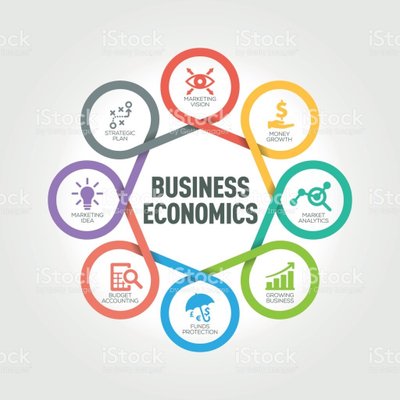Business and Economics Rising Prospects and Threats in Today’s World
Business and Economics Rising Prospects and Threats in Today’s World
Blog Article
Service and Economics 101: Essential Expertise for Aspiring Leaders
In today's swiftly evolving company landscape, striving leaders have to grow a thorough understanding of essential tactical frameworks and economic principles. Mastering concepts such as supply and demand, market frameworks, and competitors is not just scholastic; these aspects are important in shaping reliable decision-making and fostering advancement. Moreover, economic proficiency-- particularly in money circulation management-- offers as a cornerstone for sustainable growth. As we discover these important topics, it becomes evident that the crossway of service acumen and financial understanding is essential for future leaders to not only thrive however make it through in their endeavors. What ramifications does this have for calculated leadership?
Comprehending Supply and Demand
Supply and demand are essential concepts that continually underpin the technicians of any market economic situation. The relationship in between these two pressures determines the price of solutions and goods along with their availability in the market. Supply describes the quantity of an item that producers are able and willing to sell at various cost degrees, while need reflects the quantity that customers are prepared and able to purchase.
When need raises without an equivalent rise in supply, prices often tend to increase, signaling manufacturers to increase outcome. On the other hand, if supply outstrips need, prices might drop, motivating manufacturers to minimize result. This vibrant interplay assists to accomplish market stability, where the quantity provided matches the amount required at a specific rate point.

Exploring Market Structures
Market structures define the competitive environment in which businesses operate, substantially affecting their rates techniques, result levels, and general productivity. Comprehending these frameworks is important for striving leaders, as they shape business choices and market characteristics.
There are 4 main sorts of market frameworks: excellent competitors, monopolistic competition, oligopoly, and monopoly. In a completely open market, various firms provide identical items, leading to price-taking habits. Monopolistic competition attributes numerous companies offering distinguished items, permitting some pricing power. Oligopolies consist of a couple of leading firms that can affect market value, usually causing tactical communications and affordable habits. Syndicates exist when a single company manages the market, resulting in the highest level of rates power and possible market inadequacies.
Each market framework provides one-of-a-kind difficulties and chances for organizations. Leaders have to understand these subtleties to successfully place their organizations, establish affordable approaches, and reply to market adjustments. By understanding the effects of different market structures, aiming leaders can make educated decisions that drive their services toward lasting success additional hints and development in an ever-evolving financial landscape.
Financial Principles for Leaders
Efficient leadership in service necessitates a strong understanding of monetary principles, as they underpin tactical decision-making and resource allowance. Leaders must comprehend essential concepts such as capital monitoring, earnings evaluation, and financial forecasting. These elements are critical in evaluating a company's economic wellness and guiding its future instructions.
Cash money flow management is particularly crucial; it ensures that the organization maintains sufficient liquidity to satisfy its obligations while pursuing development chances. Evaluating earnings enables leaders to recognize which services or items generate the greatest returns, making it possible for enlightened investment decisions. In addition, monetary projecting aids prepare for future revenues and costs, promoting more precise budgeting and source appropriation.
Furthermore, recognizing economic declarations-- such as annual report, revenue statements, and money circulation declarations-- outfits leaders with the understandings essential to make informed options. This understanding fosters responsibility and openness, boosting stakeholder trust.
In today's dynamic service setting, leaders have to be adept at translating monetary data to react promptly to market adjustments. Inevitably, a strong understanding of monetary concepts equips leaders to drive their companies towards sustainable success while properly managing risks and resources.
The Function of Competition
Comprehending the role of competitors is crucial for any type of company aiming to flourish in a saturated market. Competitors drives development and efficiency, engaging services to enhance their services and products consistently.
Moreover, competitors can cause much better prices approaches. As firms try market share, they are incentivized to provide competitive visit here costs, profiting customers while tough services to take care of costs successfully. This vibrant fosters a culture of constant improvement, pressing organizations to improve operations and enhance worth recommendations.
Additionally, competitors can promote market development by urging new entrants. New businesses usually introduce fresh concepts and approaches, even more enhancing the overall market landscape. Companies have to likewise be vigilant; too much competition can lead to market saturation, minimizing profitability for all gamers entailed.
Ultimately, understanding and navigating competition is essential for leaders. By recognizing its complex function, aiming leaders can make informed choices that position their organizations for long-lasting success in an ever-evolving market.
Strategic Decision-Making
In the world of company, strategic decision-making is fundamental to achieving long-term objectives and adjusting to changing scenarios. This procedure entails evaluating numerous alternatives and selecting one of the most effective program of action that lines up with the organization's vision and objectives. Reliable tactical decision-making needs an extensive understanding of both interior and exterior atmospheres, consisting of market patterns, affordable dynamics, and business capacities.
Leaders should gather relevant details, examine it critically, and forecast potential outcomes. Furthermore, examining threats linked with each different allows leaders to prepare for obstacles and establish backup strategies.
Eventually, effective strategic decision-making equips organizations to browse intricacies, utilize chances, and react proactively to risks. By growing a culture that values informed decision-making, companies place themselves to introduce and maintain a competitive side in an ever-evolving company landscape. Hopeful leaders should develop these abilities, as their capacity to make sound tactical decisions will substantially affect their organizations' success and sustainability.

Final Thought
In verdict, a solid understanding of organization and economics basics is vital for aspiring leaders. Expertise of supply and demand, market structures, and financial concepts promotes notified reliable and decision-making resource allocation. Recognizing the function of competition additional improves critical thinking, enabling leaders to browse intricate market characteristics. Inevitably, this fundamental knowledge furnishes future leaders to introduce and line up organizational approaches with evolving market problems, leading the way for continual success and success.
Recognizing these concepts is vital for aiming service leaders, as they create the foundation for effective decision-making in rates, source appropriation, and market technique. Comprehending supply and need equips leaders to browse the intricacies of market variations and consumer actions.
Monopolies exist when a single firm manages the market, resulting in the highest level of prices power and possible market inadequacies.
By comprehending the effects of different market structures, aspiring leaders can make educated decisions that drive their companies towards lasting success and growth in an ever-evolving economic landscape.
Understanding the role of competitors additional boosts critical thinking, enabling click for more leaders to browse intricate market characteristics.
Report this page